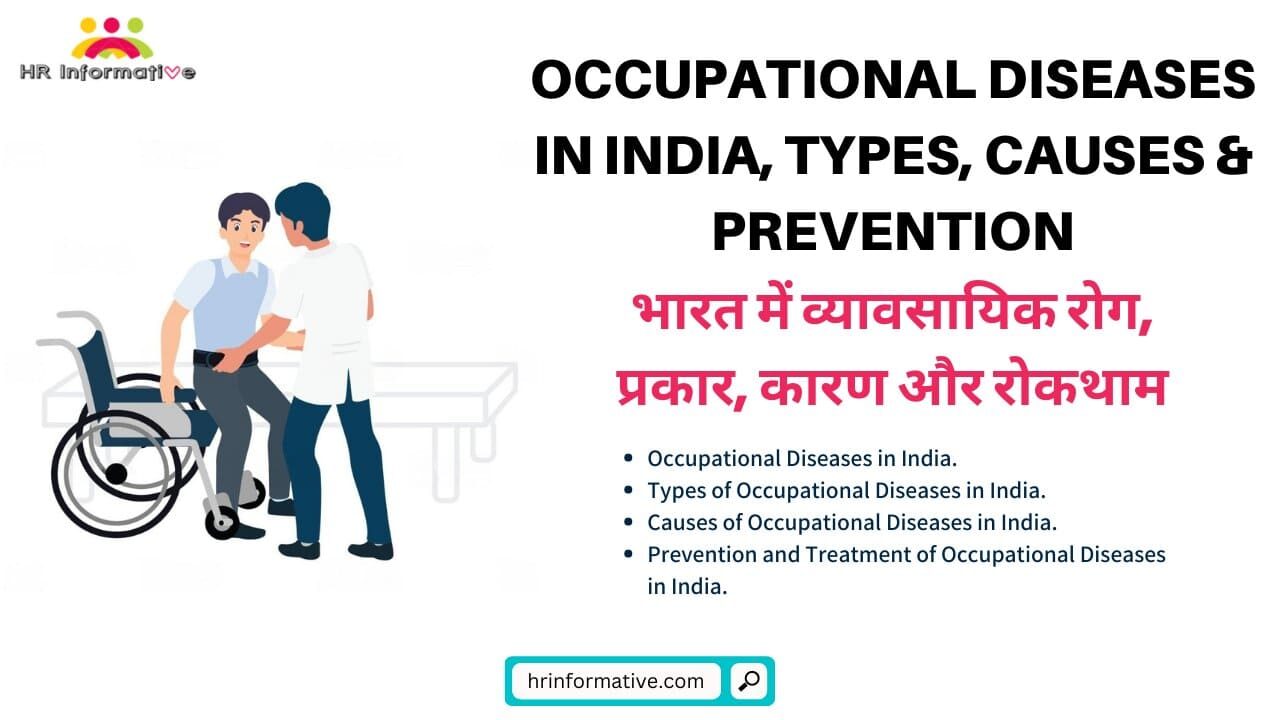Hello there! The Employee’s State Insurance (ESI) Scheme is a prominent social security initiative in India that provides medical and financial benefits to employees and their dependents. The scheme is administered by the Employees’ State Insurance Corporation (ESIC) and plays a vital role in ensuring the welfare of workers in the organized sector. In this article, we delve into the various aspects of the ESI Scheme, including eligibility criteria, coverage, benefits, and other important details.
ESI Scheme Highlights
| Scheme Name | Employees State Insurance Scheme (ESI Scheme) |
| Administrated By | Employees’ State Insurance Corporation (ESIC) |
| Applicable To | Establishment With a Minimum of 10 Employees |
| Beneficiary | Employees Getting Salary or Wages up to Rs. 21,000 |
| Contributions |
|
| Registration of Employee | Must Register in ESIC within 10 Days from the Date of Joining |
| Registration of Establishment | Must Register within 15 Days of the Applicability of the Act |
| Official Website | esic.gov.in |
What is ESI Scheme
The ESI scheme refers to the Employees’ State Insurance Scheme, which is a social security and health insurance program in India. It is managed by the Employees’ State Insurance Corporation (ESIC), a statutory body under the Ministry of Labour and Employment, Government of India.
The ESI scheme provides comprehensive medical and social security benefits to employees and their dependents in the organized sector. Under this scheme, both the employer and the employee contribute a percentage of the employee’s wages towards the fund, which is then used to provide various benefits.
Eligibility Criteria for ESI Scheme
To be eligible for the ESI Scheme, an employee must meet the following criteria:
- The employee should be working in a factory or establishment employing 10 or more individuals.
- The employee’s monthly wage or gross salary should not exceed Rs. 21,000 (as of September 2021).
ESI Scheme Contributions
Both employers and employees contribute to the ESI scheme. The employer’s contribution is 3.25% of the employee’s wages, while the employee’s contribution is 0.75% of their wages. The employer is responsible for deducting the employee’s contribution from their wages and depositing the total contribution with the ESIC.
Try Free Online ESI Calculator
Registration under ESI Scheme
Registration under the ESI scheme is mandatory for eligible employers, and they must register within 15 days of the applicability of the Act. Once registered, the employer receives an employer code, and the employees are allotted an insurance number.
ESI Scheme Coverage
The ESI Scheme extends its coverage to the following categories of employees:
- Employees working in factories and establishments specified under the ESI Act, 1948.
- Employees engaged in hazardous activities such as construction work, power generation, manufacturing, and more.
- Employees working in non-seasonal factories and establishments, including shops, hotels, cinemas, road transport, newspaper establishments, and private educational institutions.
Benefits under the ESI Scheme
1. Medical Benefits: The ESI scheme provides comprehensive medical care to insured persons (employees) and their family members. It covers outpatient treatment, hospitalization, specialist consultations, diagnostic tests, medicines, and more. Employees and their dependents can avail of these medical facilities at ESI dispensaries, hospitals, and recognized private medical institutions.
2. Sickness Benefit: Insured persons who are unable to work due to sickness or temporary disablement can receive cash benefits during the period of absence. The benefit is payable for a maximum of 91 days in two consecutive benefit periods, with a rate of 70% of the average daily wages. To be eligible for sickness benefits, the insured person must contribute for a minimum of 78 days within a 6 month contribution period.
3. Extended Sickness Benefit: Employees who require medical treatment beyond the initial 91 days are entitled to an extended sickness benefit. This benefit amounts to 80% of the average daily wages and is payable for a maximum of two years.
4. Maternity Benefit: Female employees are entitled to maternity benefits under the ESI scheme. The benefit is payable for 26 weeks, with an increase to 30 weeks in case of certain specified illnesses. The rate of maternity benefit is 100% of the average daily wages subject to contribution for 70 days in the preceding two Contribution Periods.
5. Disablement Benefit: In case of permanent or temporary disablement due to an employment-related injury or occupational disease, insured persons are eligible for disablement benefits. The benefit amount depends on the degree of disablement and is paid as a monthly pension.
- Temporary disablement benefit (TDB), equivalent to 90% of the wage, is payable as long as the disability persists.
- Permanent disablement benefit (PDB) is paid in the form of monthly payments, amounting to 90% of the wage, based on the extent of loss of earning capacity as certified by a Medical Board.
6. Dependent Benefits: If an insured person dies due to an employment-related injury or occupational disease, his/her dependents are entitled to dependents’ benefits. These benefits are paid at a rate of 90% of the wage in the form of monthly payments to the spouse and children.
7. Funeral Expenses: The scheme covers funeral expenses up to Rs. 15,000 for an insured person, who passes away during the course of employment. This provides financial support to the family during this difficult time.
8. Vocational Rehabilitation: Vocational rehabilitation aims to assist injured or disabled employees in returning to work or acquiring new skills for suitable employment. The ESI Scheme provides vocational training and rehabilitation services to insured individuals who are unable to continue their previous occupation due to a work-related disability. These services may include – Vocational Training Programs, Skill Assessment and Counseling, and Job Placement Assistance.
9. Physical Rehabilitation: Physical rehabilitation focuses on restoring or improving physical functioning and mobility for individuals who have suffered work-related injuries or illnesses. The ESI Scheme may provide the following physical rehabilitation services – Physiotherapy, Prosthetic and Orthotic Devices, and Assistive Devices and Aids.
Employers Liability under ESI Scheme
Here are the key liabilities of employers under the ESI Scheme:
1. Establishments/Employers Registration: Employers must register themselves and their eligible employees under the ESI Scheme within 15 days from the date the ESI Act becomes applicable to their establishment.
2. Employees Registration: Employers must register eligible employees in the ESI Scheme within 10 days of their joining.
3. Declaration Form: Employers must get the Declaration Form (Form-1) filled by the employees with all necessary details.
4. Contribution: Employers are required to contribute towards the ESI Scheme. The contribution consists of both the employer’s share and the employee’s share. The current contribution rates are 3.25% of the wages for the employer and 0.75% of the wages for the employee. These rates are subject to periodic revisions by the government.
5. Calculation of wages: Employers must correctly calculate the wages of their employees, including all components such as basic salary, dearness allowance, house rent allowance, incentive payments, and any other remuneration. The ESI contribution is based on these wages.
6. Maintenance of Records: Employers are required to keep records and registers to facilitate inquiries and inspections. These records and registers encompass Attendance Registers, Cash/Bank Books, Wage Registers, Employee Registers, Challan Copies, Accident Books, Inspection Books, Account Books, Contribution Returns, and Declaration Forms.
7. Submission of Contributions: Employers must submit the ESI contributions along with a contribution statement to the appropriate ESI authorities. The contributions should be deposited on or before the 15th of each month. Employers are required to deposit the ESIC contributions for their employees within 15 days of the following month.
8. Compliance with Inspections: Employers should allow ESI inspectors to conduct inspections and provide necessary information or documents as requested. Inspections are carried out to ensure compliance with the ESI Act and to verify the accuracy of records and contributions.
9. Reporting Accidents: In case of employment-related accidents leading to the death or disablement of an employee, the employer must report such accidents to the nearest ESI office within 24 hours of occurrence.
Non-compliance with the ESI Scheme’s provisions can result in penalties, fines, and legal consequences for employers. It is essential for employers to understand and fulfill their obligations under the ESI Scheme to ensure compliance with the law and provide social security benefits to their employees.
Conclusion
The Employee State Insurance (ESI) scheme is a crucial social security initiative that provides employees with essential medical and financial benefits. It ensures that employees and their dependents have access to quality healthcare and financial support during times of illness, disability, or maternity. By contributing to the scheme, both employers and employees contribute to the overall welfare of the workforce. The ESI scheme plays a vital role in promoting social security and improving the quality of life for employees across various industries in India.
FAQs
Q1: Who is eligible for the ESI Scheme?
Ans: Employees working in establishments or factories with a minimum of 10 employees and earning a monthly wage of up to Rs. 21,000 are eligible for the ESI Scheme.
Q2: How is the contribution to the ESI Scheme calculated?
Ans: The employer contributes 3.25% of the employee’s wages, while the employee contributes 0.75% of their wages.
Q3: What are the benefits provided under the ESI Scheme?
Ans: The ESI Scheme offers medical benefits, sickness benefits, extended sickness benefits, maternity benefits, disablement benefits, dependent benefits, and funeral expenses.
Q4: Where can employees avail of medical benefits under the ESI Scheme?
Ans: Insured persons and their dependents can avail of medical facilities at ESI dispensaries, hospitals, and recognized private medical institutions.
Q5: How long can an insured person receive sickness benefits?
Ans: Sickness benefits are payable for a maximum of 91 days in two consecutive benefit periods, with a rate of 70% of the average daily wages.
Q6: What is the duration of maternity benefits under the ESI Scheme?
Ans: Female employees are entitled to maternity benefits for 26 weeks, with an increase to 30 weeks in case of certain specified illnesses. The rate of maternity benefit is 100% of the average daily wages.
Q7: Are dependents of insured persons eligible for benefits?
Ans: Yes, in case of the insured person’s death due to an employment-related injury or occupational disease, dependents are entitled to dependents’ benefits, including a monthly pension and, in some cases, the cost of funeral expenses.
Q8: What are the employer’s responsibilities under the ESI Scheme?
Ans: Employers have various responsibilities, including registering their establishment and eligible employees, correctly calculating wages, maintaining records, submitting contributions on time, complying with inspections, and reporting accidents.
Q9: What are the consequences of non-compliance with the ESI Scheme provisions?
Ans: Non-compliance can result in penalties, fines, and legal consequences for employers.
Q10: Where can I find more information about the ESI Scheme?
Ans: You can visit the official website of the Employees’ State Insurance Corporation (ESIC) at esic.gov.in for detailed information about the ESI Scheme.
You May Read Also :



